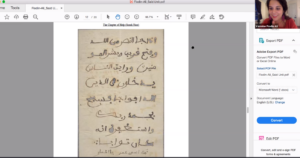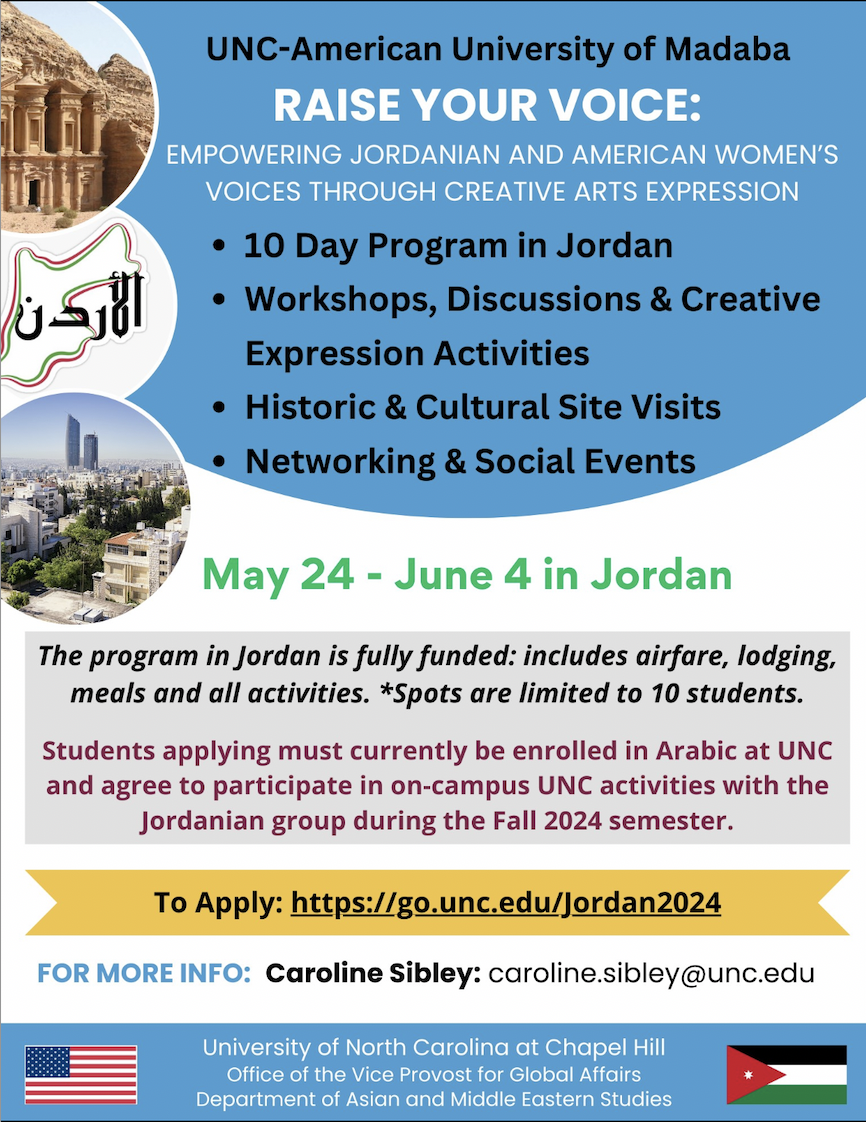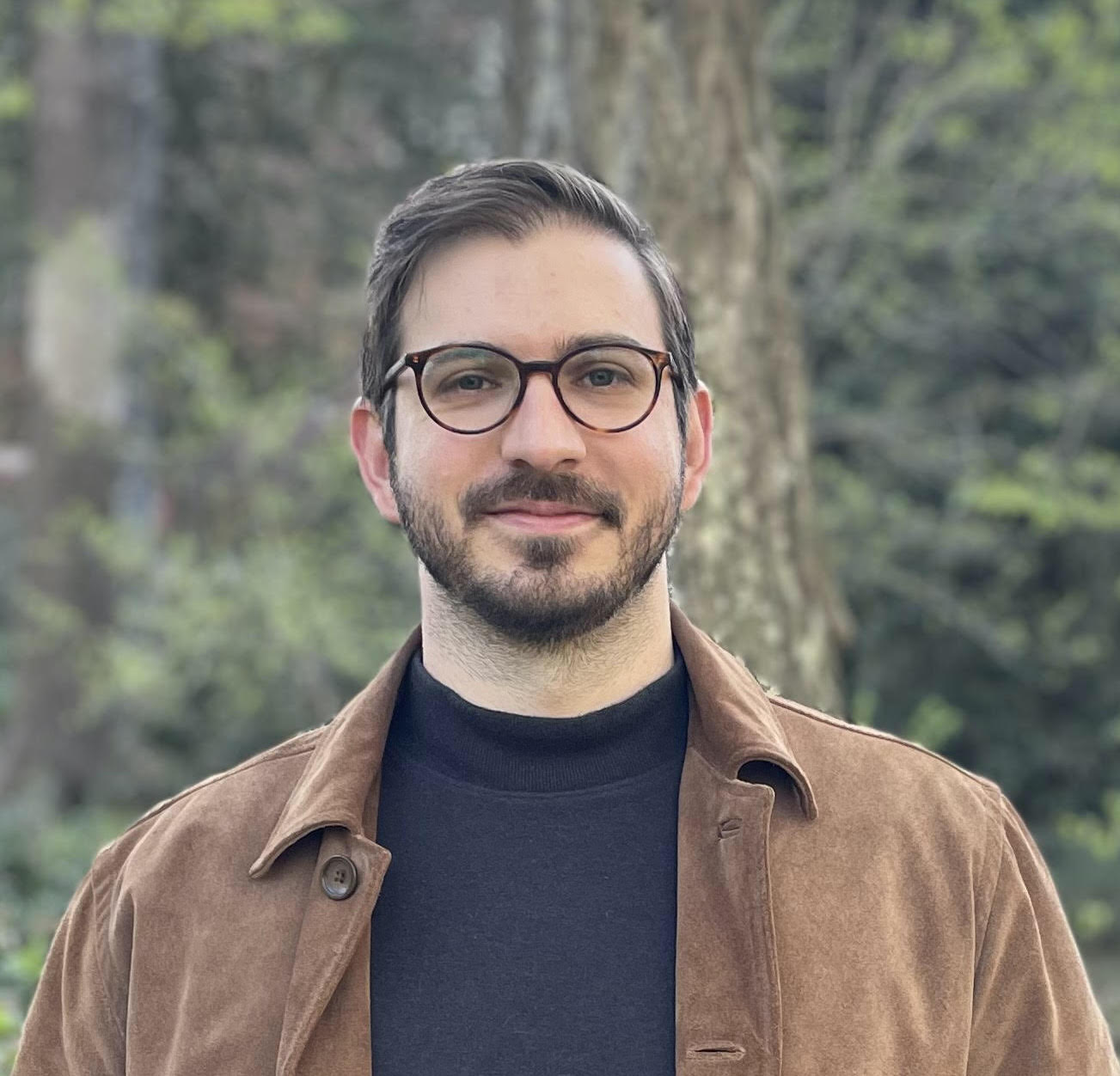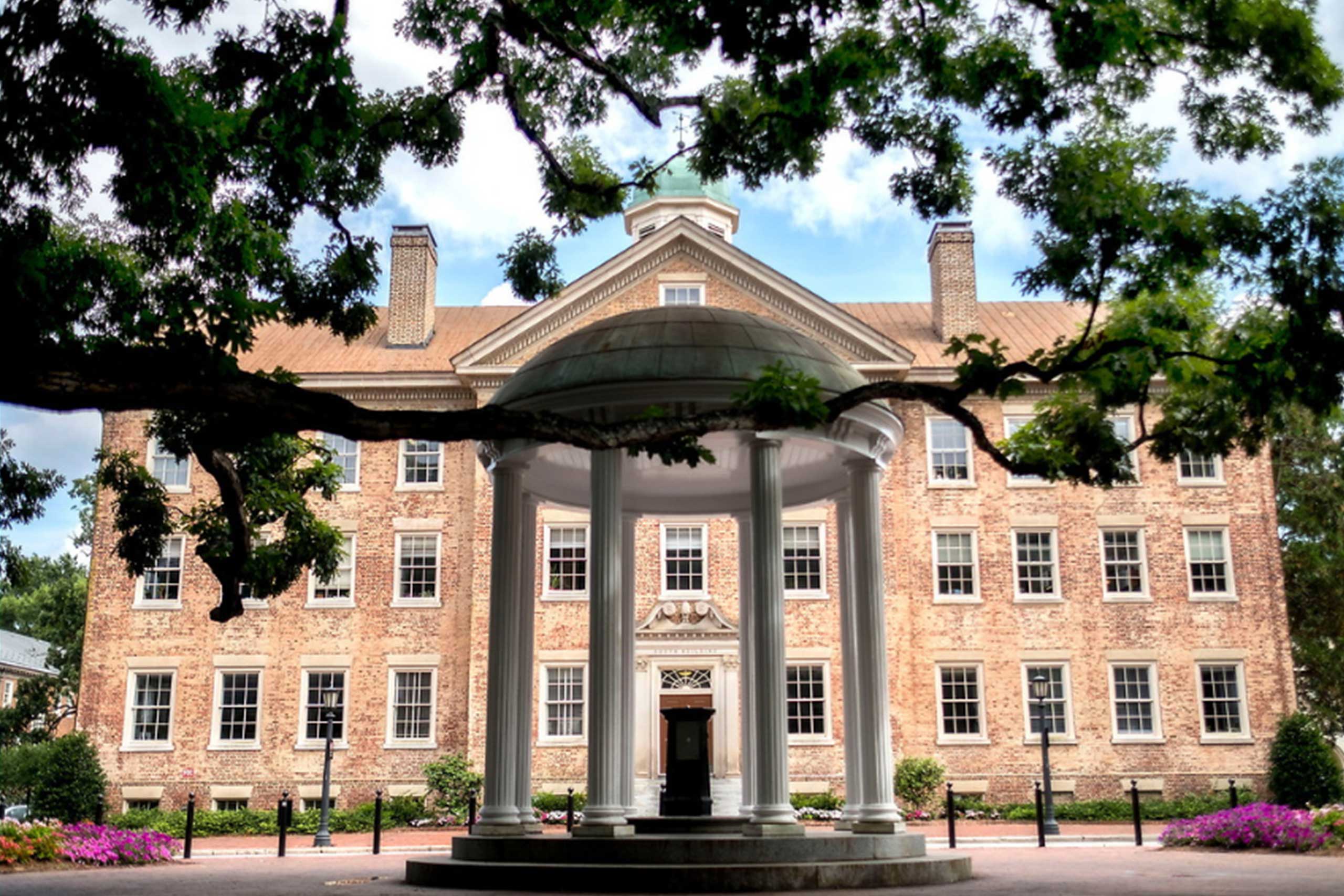
Flodin-Ali demonstrates ideas for using Omar ibn Said’s manuscripts with high school students.
Flodin-Ali presented three important historical moments in Muslim American history with accompanying materials for the classroom. The first examines enslaved Muslims in the United States with special focus on Omar ibn Said, who lived in North Carolina and wrote the only known Arabic language autobiography written by an enslaved person in America. The lesson emphasizes the literacy of many enslaved Muslims, and the multilingual and multi-religious nature of the United States from its earliest days. This unit also teaches students about transnational connections, particularly between the antebellum South and West Africa.
Flodin-Ali then spoke about her second lesson plan, which aims to introduce students to Middle Eastern and South East Asian migration to the United States prior to 1965. This lesson plan includes a variety of opportunities to teach students about the influences these immigrant groups had on the development of the United States while also discussing early 1890s-1960’s immigration policies in the United States.
The final lesson that was presented introduces the Iranian Revolution to students in the context of the United States-Iranian relations pre-, during, and post-Revolution. The curriculum aims to give students a nuanced understanding of the conflict, as well as ramifications on Iranian Americans and on American perceptions of Iran. Across all of the lessons, themes of identity, belonging, and unique cultural contributions of Muslim Americans are addressed. The lessons also feature a variety of sources, from original manuscripts, to oral histories, to political cartoons. Flodin-Ali shared, “I really appreciated this opportunity to take the time to find primary sources, and think about how to make them accessible to educators so that they can be used in the classroom.”
An engaging discussion and question and answer period followed Flodin-Ali’s presentation. The educators spoke on how they could adapt each lesson for their classrooms and students. “I really like the idea of telling individual stories,” shared one attendee, “I can adapt this material to my middle school lessons and studying one individual would be a great way to open up a unit.”
The units provide easily accessible resources for subjects that are less commonly taught in high school curricula and diversify American history topics. One teacher reflected, “This was really eye-opening! The speaker gave a lot of thoughtful statements and resources for us to use as educators.”
View a recording of the webinar.
Access the lesson plans. Expand “Islam,” and scroll down to “Muslim Americans” to find the three units.
Abdulrahman Sarsour ‘24






